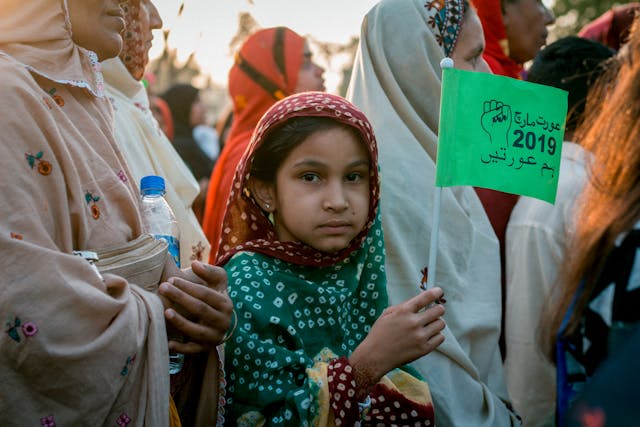After the long haul perilous Cold War in 1989, marked by the fall of the Berlin Wall, the wave of undisputed globalization and liberal order appeared as the only political champion of the future. During the same period, the dot-com bubble showed endless possibilities to make the world interconnected while minimizing hardline borders. However, the promotion of increasing nationalist policies by leading global economies in the past decade has reversed this notion, such as Brexit and the 2016 US elections.
The problem with nationalist policies is that the nation-state does not have an effective framework to address the global challenges. These policies have placed an empty void to tackle global challenges, including climate change, nuclear threat, and the technological disruption brought on by big data. All of these require global cooperation. These challenges have become the main source of global economic fallout that has just started to erupt and has a long way to go, while being inevitable and irreversible unlike the great depression or the 2008 financial crisis.
As in modern-day economics, the global economic system is not only based on trade and businesses, but also involves the factors that lead to the growth and collapse of the economic system based on trade and businesses. Moreover, the recent pandemic has further exposed the void of tackling global challenges, as many countries around the world are failing to tackle the pandemic with mutual cooperation. They are increasing nationalist policies and incurring more damage with lesser hope to tackle the virus.
Besides that, global cooperation has mainly become the victim of nationalist and anti-globalizing policies while letting the actual challenges to go unaddressed.
The loss of distinction between capitalism and globalism has mainly led to the anti-globalization agenda while ignoring the need to revamp the unequal capitalist structure, which also requires global cooperation to tackle. Trade liberalization with the help of Inter-Governmental Organizations’ (IGOs) intervention pays the way to revamp the existing capitalist structure and trade inequalities as more countries become interdependent under the policies of IGOs. The question is whether free trade and Inter-governmental organizations can provide a solution to such challenges or not.
Role of trade liberalization in promoting global cooperation
Trade liberalization is a source of the increasing interdependence of countries. It paves the way for mutual decision making and provides an opportunity to address the global challenges jointly. The nationalist policies, following the anti-globalization notion, believes that the international system is in anarchy and the need of the hour is to close up borders. Decreasing interdependence is in the best interest of national security, but it comes at the expense of letting the global challenges go unanswered.
It is important to explore the factors that play their role in leading a state to promote nationalist and anti-globalizing measures. According to anti-globalizers, free trade leads to the loss of domestic jobs, increased exports, and loss of national autonomy of the states. Therefore, backing down from international cooperation is in the best interest of the protection of the homeland.
David Ricardo’s theory of comparative advantage explains that if one country is efficient in producing a good while the other country is efficient in producing another good, then it’s in the best interest of these two countries to exchange their goods through trade, which is a bilateral process. Based on this, two countries equally benefit from each other through trade while increasing interdependence, leading to increased peace and security for the sake of trade, as put forward by Richard Cobden.
Free trade leads to an increase in efficient and innovative industries, which improves overall wages while replacing inefficient industries. On the other hand, nationalist measures reduce the opportunity for new and efficient industries to emerge.
As for institutions, free trade also without its enforcement mechanism just remains a theory. Thus, Inter-Governmental Organizations have a vital role to play for a successful, multilateral, and fair free trade.
Role of Intergovernmental Organizations in enforcing an effective mechanism for free trade

The nationalist measures, disregarding globalization and free trade, reduce countries’ interdependence from IGOs (which provide enforcement mechanisms for free trade and global cooperation). In recent events, this is reflected in Donald Trump’s threat to withdraw from the World Trade Organization and his formal decisions to withdraw from the Paris-Climate accord, Trans-Pacific Partnership, and the World Health Organization.
These multilateral negotiations provide a fundamental base to provide a common ground for increasing free trade.
Free trade provides an opportunity to revamp the existing anarchy with the fair role of IGOs. As the challenges have grown to a global scale, it is the need of the hour to tackle those challenges with global cooperation. The factors leading to mistrust in IGOs and free trade can only be addressed with global cooperation and not by nationalist measures. Until we reach another alternate, it might be too late to address these challenges.
Hence, not providing a viable solution or taking any measures to revamp the global challenges will only lead to their exponential increment while remaining unaddressed. Therefore, global cooperation, led by free trade and Inter-Governmental Organizations, is a solution to tackle global challenges – and nationalist measures that let those challenges go unaddressed.
References
Harari, Y. N. (2020, March 15). In the Battle Against Coronavirus, Humanity Lacks Leadership. Time.
IMF. (2001, November 1). Global Trade Liberalization and the Developing Countries. International Monetary Fund.







3 thoughts on “Trade Liberalization & Global Challenges”
Well-written – explained the picture holistically.
Just want to add if there\’s a gap between theory and practice, wouldn\’t the free trade policies be taken consciously?
I think it would be best to propose that countries should opt for nationalist as well as for free trade policies keeping in view the global and national social welfare.
Hi Ammara, it’s certainly true that trade liberalization has led to increasing unequal wealth distribution among both the individuals and countries. While the intergovernmental organizations has played their role in promoting this inequality gap rather than reducing it, such as encouraging developing countries to open up their trade borders for international trade through the policies devised by intergovernmental organizations. A tool to discourage infant industries promotion in developing countries.
But on the other hand, the world needs global cooperation to tackle global challenges, where trade liberalization can play it’s role. This can make countries more interdependent on eachother and a chance to let them make mutual decisions that are not limited to certain nation, but a whole region, which has the power to tackle the global challenges.
So, yes. Following the unfair trend of trade liberalization, the need for economic nationalist policies comes naturally and thus, the free trade policies needs to be taken consciously. But on the other hand, we also need global cooperation to tackle global challenges and this is where intergovernmental organizations needs to play their fair role in promoting fair trade liberalization in the best interest of the globe.
True, there comes the role of intergovernmental organizations in the case of trade liberalization, but then conflicting incentives among organizations hinder the process.